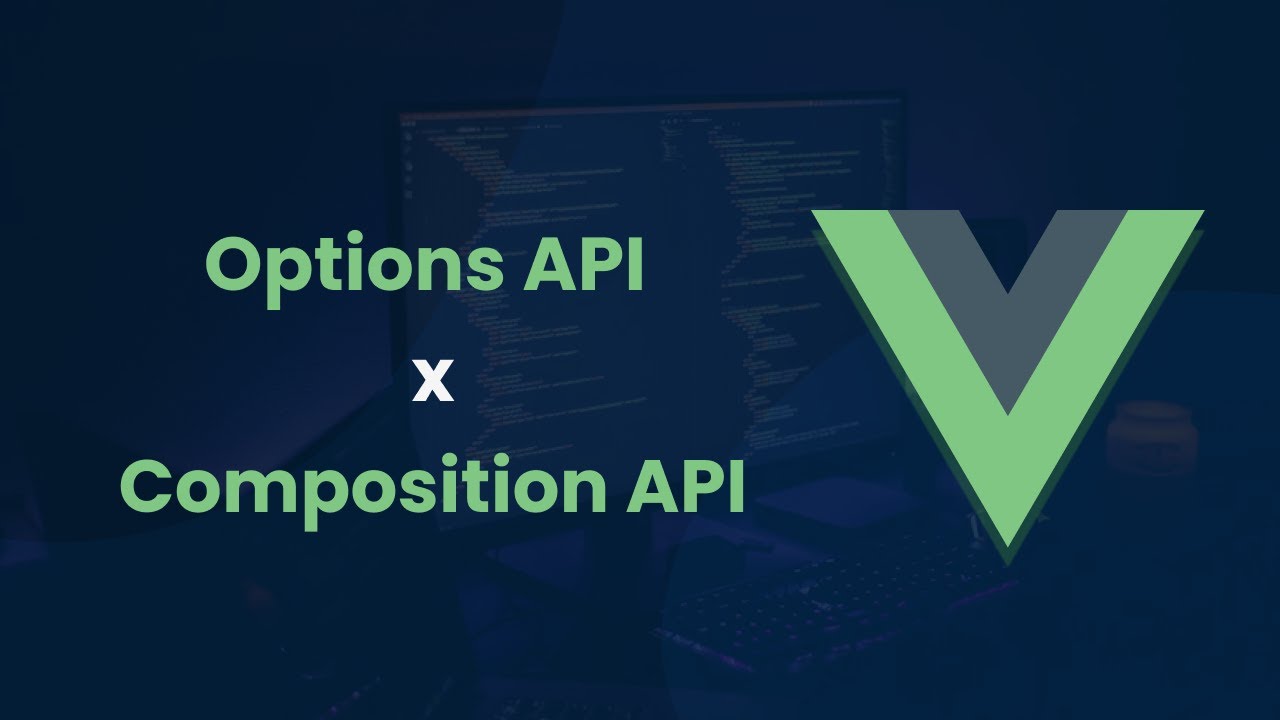Exploring the Optional API vs. Compositional API in Vue.js

Introduction:
Vue.js, a popular JavaScript framework for building user interfaces, provides developers with two distinct approaches to structuring and organizing their code: the Optional API and the Compositional API. These APIs offer different paradigms for developing Vue applications and each has its own strengths and use cases. In this article, we will delve into the details of the Optional API and Compositional API in Vue.js, highlighting their differences, benefits, and when to use each approach.
Understanding the Optional API:
The Optional API is the traditional approach to building Vue components, and it relies heavily on the Options Object syntax. It involves defining various lifecycle hooks, such as created, mounted, updated, and destroyed, as well as methods, computed properties, and watchers within the Options Object of a component. This API is well-suited for small to medium-sized projects or for developers who prefer a declarative approach.
Benefits of the Optional API:
- Familiarity: The Optional API aligns closely with the traditional Vue.js syntax, making it easier for developers who are already familiar with Vue to get started.
- Clear separation: The Options Object syntax provides a clear separation between different concerns, such as methods, data, and lifecycle hooks, making the codebase easier to navigate and maintain.
- Flexibility: The Optional API allows developers to utilize a wide range of Vue's features, including mixins, directives, and filters, which can be useful in certain scenarios.
Understanding the Compositional API:
The Compositional API, introduced in Vue.js 3, takes a more functional approach by allowing developers to define their component's logic using functions and composition patterns. Instead of defining options within an object, developers create reusable composition functions that can be combined and composed to form the component's behavior. This API is particularly beneficial for larger projects or when code reusability and modularity are crucial.
Benefits of the Compositional API:
- Code organization: With the Compositional API, logic can be organized into smaller, reusable functions, which promotes code maintainability and reusability. It allows developers to focus on building individual functions that encapsulate specific behaviors, making the codebase more modular and easier to test.
- Type safety: Vue.js 3, which introduced the Compositional API, leverages TypeScript to provide better type checking and autocompletion support, leading to fewer runtime errors and improved developer productivity.
- Improved debugging: The Compositional API offers better debugging capabilities by providing clearer stack traces and more granular error messages, making it easier to pinpoint issues within the code.
Choosing the Right API for Your Project:
The choice between the Optional API and Compositional API depends on various factors, including the project's size, complexity, team familiarity, and personal preferences. Here are some guidelines to consider:
- Optional API:
- Best suited for small to medium-sized projects or when working with a team that is already familiar with the Options Object syntax.
- Provides a declarative approach and easy integration with Vue ecosystem features like mixins, directives, and filters.
- Offers a clear separation of concerns and is suitable for developers who prefer a more traditional Vue.js approach.
- Compositional API:
- Recommended for larger projects or when code reusability and modularity are critical.
- Enables better organization and maintainability of code through composition functions.
- Provides improved type safety and debugging capabilities, especially when used with TypeScript.
Conclusion:
Vue.js provides developers with two powerful APIs, the Optional API and the Compositional API, each with its own merits. The Optional API, based on the Options Object syntax, offers familiarity, flexibility, and clear separation of concerns, making it ideal for smaller projects. On the other hand, the Compositional API, introduced in Vue.js 3, focuses on code organization, reusability, type safety, and improved debugging, making it a strong choice for larger and more complex projects. Choosing the right API ultimately depends on project requirements, team familiarity, and personal preferences, but both options empower developers to build robust and scalable Vue.js applications.